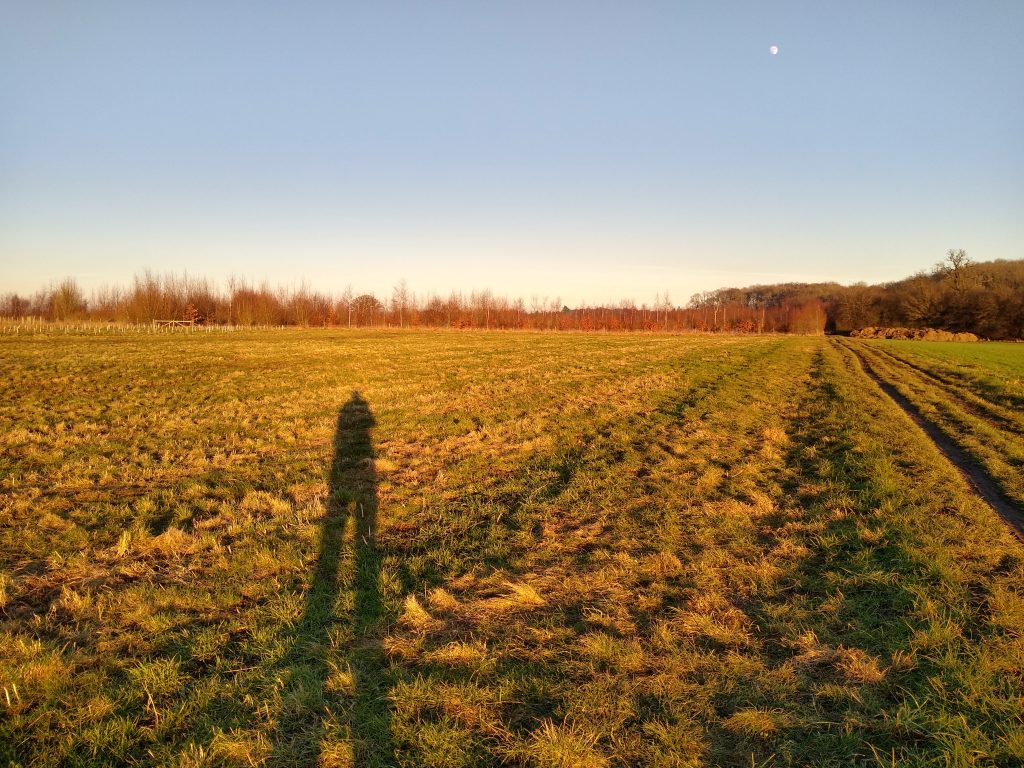Sounds like some kind of hippy trend, doesn’t it? Sounds like a fad you might get bored with after a while, or something you probably don’t have time for. But intentional living is for everyone, all the time, and you may need it even more than you think. I keep on realising I still do, even a few years along my intentional living journey.
WHY DO WE NEED INTENTIONAL LIVING?
Life is busy, and there are so many demands on our attention. We have loved ones to care for, employers to please, bills to pay, homes and possessions to look after, futures to think of… And even if we manage to juggle all that effectively, there’s the onslaught of information and advertising requiring more from us.
“Your phone/car/lipstick isn’t good enough – get this phone/car/lipstick instead!” “Do this or the earth will die!” “Vote!” “Recycle!” “Exercise!” “Wear this!” “Don’t eat that!” “What do you mean, you don’t have an opinion on *insert latest contentious political issue here*?”
Seemingly everyone wants something from us and everyone has their own expectations of us.
It’s all too easy to be swept along by those expectations and demands. It doesn’t seem wrong or dangerous at first. You barely even notice it happening.
And then one day you wonder how you got where you are, and what happened to all your dreams and good intentions. You wake up and realise you’re sleepwalking through life. You’re on autopilot, just letting life happen to you. Maybe you’re living according to other people’s values, decisions and expectations instead of your own. Or maybe you’re just keeping your head down and letting life pass you by. And it was all completely unintentional.
Intentional living is the antidote.
WHAT IS INTENTIONAL LIVING?
In short, intentional living means noticing what’s going on in your life, and choosing your path instead of allowing yourself to be swept along. It means taking control, choosing your course, and steering your own ship again.
Intentional living is mindful living, because you pay more attention and engage fully and carefully with the world.
Intentional living is conscious living, because you’re more aware of your decisions and how they affect your path in life.
Intentional living is simpler living, because it means eliminating what doesn’t serve us, and having less meaningless clutter in our lives.
Intentional living is joyful living, because there’s nothing more fulfilling than living like you mean it.
Intentional living is purposeful living, because it means taking responsibility for your unique contribution to the universe: your purpose on the earth.
Intentional living is authentic and meaningful living, because you’re finally learning to be the best version of yourself.
“The aim of the life of a rosebush is to be all that is inherent as potentiality in the rosebush: that its leaves are well developed and that its flower is the most perfect rose that can grow out of this seed.”
Erich Fromm

HOW TO TAKE CONTROL AND LIVE WITH INTENTION
Reduce Clutter
The one biggest thing that keeps us distracted and overbusy; the one main obstacle to intentional living; the main thing that keeps us on autopilot, living by the seat of our pants, is clutter.
Clutter gets in the way of what’s important. And I don’t mean just the kind of clutter on your floor and sidetables and in your closet. There’s time clutter, social clutter, career clutter, mental clutter, paper clutter, financial clutter, digital clutter and more.
To live with conscious intention, we need to declutter every part of our lives. We need to make sure we’re focusing on what’s important, with as few distractions as possible.
We need to clear out the crap. We need to eliminate whatever doesn’t align with our journey to being our best selves.

ACTION STEP: List the areas in your life and home that need decluttering the most. Write down your thoughts on the sources of the clutter and the things that most urgently need eliminating. In particular, consider what takes up your time and money, and any areas that make you feel unhappy or overwhelmed. Make a plan to declutter one area at a time.
RELATED: This one exercise helped me declutter my wardrobe for good!
Employ Mindfulness
Intentional living requires slowing down enough to notice life. Enough to notice how you’re living: how you’re experiencing life, the thoughts and feelings it gives you, and all the little decisions you make each day without even thinking about it. And enough to notice the world around you more, and engage with it in meaningful ways.
With mindfulness, we learn to be more aware of our surroundings and our selves. We learn patience, acceptance, curiosity, self-trust and more. Mindfulness can decrease stress and anxiety, increase resilience and focus, improve emotional balance and sleep, and have a whole host of other effects that can improve your health and your life. We become better able to process information and emotions, and this puts us more in control of our decisions and our lives.

ACTION STEP: Take time each day to be still and sit with your thoughts and feelings. A meditation and/or journaling practice is an ideal aid. Another great time to practice mindfulness is when you take a walk, eat, wash dishes, or shower. Focus on being completely present. Engage your senses and notice all the details.
Honour Your Values
Intentional living means living according to your own values, and not anyone else’s. It also means NOT living according your urges, but having enough discipline to stay focused on what’s most important.
But what is most important to you? What are your personal values? Do your actions align with them?
It’s shocking to realise, but if we’re not careful we can go right through life without ever asking these questions. It’s far too easy to copy the values of others, or to claim we value one thing while mindlessly behaving like we value something else. We might claim we value the environment but still have a bunch of unnecessary planet-polluting habits. We might claim we value our health but really value that nightly bottle of wine more.
“When somebody says, “I want to be good,” that definition of what is “good” is a reflection of what they value. Some will see “being good” as attaining money. Others will see it as building a family. Others will see it as having a lot of exciting experiences. Whatever it is, it is determined by our personal values.”
Mark Manson
Being true to yourself is essential for living a fulfilling life, but first you need to pause, pay attention, and figure out who ‘yourself’ actually is. Discovering your values will give you a clear picture. Our values define us, far more than our sensory or cultural preferences, far more than our opinions or knowledge or achievements.
Once you know what you value the most, making decisions becomes much easier. Once you know what is most important, the clutter becomes more obvious. Your goals become more meaningful.

ACTION STEP: Spend some time discovering your values. Use the exercises in my goal-setting post to help you.
Embrace Individuality
Intentional living means standing out from the crowd. It means saying no to how others want you to live your life, and identifying how YOU want to live it, and that means figuring out what makes you different to them: what makes you unique.
Your meaning in life comes from your unique passions, skills and dreams. Your contribution to the universe is unlike anyone else’s, because there’s nobody else exactly like you, with your unique combination of experiences, thoughts, feelings and ideas.
“Feature the things that make you unique.”
Emily Wapnick (How To Be Everything: A Guide for Those Who (Still) Don’t Know What They Want to Be When They Grow Up)
A lot of the time we’re told to work on our weaknesses, and level-up what we’re lacking. But doesn’t that just lead towards us all being kinda average and samey, with the same strengths? How will you have time to become a master at your strengths if you’re focusing on your weaknesses all the time?
Instead, focus on your strengths and your passions. Get to know yourself better. Focus on what makes you different. That’s where the magic lies.

ACTION STEP: Go out on an adventure by yourself! Ideally choose something you wouldn’t normally do, or something you’ve been wanting to try for a long time. Enjoy this time alone, and notice what thoughts and feelings come up. Don’t share it on social media – it’s just for you and your authentic self!
Choose Your Path
Once you’ve identified what is in alignment with your values and goals, and what is not, it’s time to take action. Intentional living empowers you to choose the path your life takes.
It might mean setting new goals, or perhaps writing a five year plan. It might mean cutting ties with toxic people, looking for a new job, or investing in a new hobby.
And it will probably mean changing your habits. Often our habits are in line with our urges and impulses and don’t really serve us. We tend to believe that each little everyday choice we make only matters in the moment, but in fact all of our choices are adding up to the person we are becoming.

“People do not decide their futures. They decide their habits, and their habits decide their futures.”
F M Alexander
Choosing your path is an ongoing process. Life will try to sweep you along again. But with mindfulness and self-knowledge, keep focusing on what is important, choosing what aligns with your values, and growing towards being the best you you can be.
Sometimes, intentional living includes doing what other people want to do, or compromising for the sake of a loved one. Compromise is necessary in relationships, and relationships are often very important to us. But these are decisions to make carefully and mindfully, and compromises to make only for the right people.

ACTION STEP: Choose some goals and habits for the next six months or so. Make a step-by-step plan to achieve them and grow closer to being the best version of yourself.
RELATED: Bullet journaling for intentional living.
IN SUMMARY
If you want to live your best life – a fulfilled and meaningful life – you can’t just go with the flow. Intentional living sets you on the path to living out your true purpose and being the best version of yourself.
Intentional living is a lifelong journey, but these five practices will get you firmly on the right road:
- Cut out the clutter.
- Be mindful, always.
- Know yourself by discovering your values.
- Embrace what make you unique.
- Set your intentions by choosing meaningful goals and constructive habits.
What About You?
Has this article helped you? Do you have any tips to share for living more intentionally? Let me know in the comments.
To kickstart your intentional living journey, why not try my ‘Contact With Creation’ challenge? It’s 40 days of simple, nourishing activities based on mindfulness, gratitude and connecting with the world and yourself.




